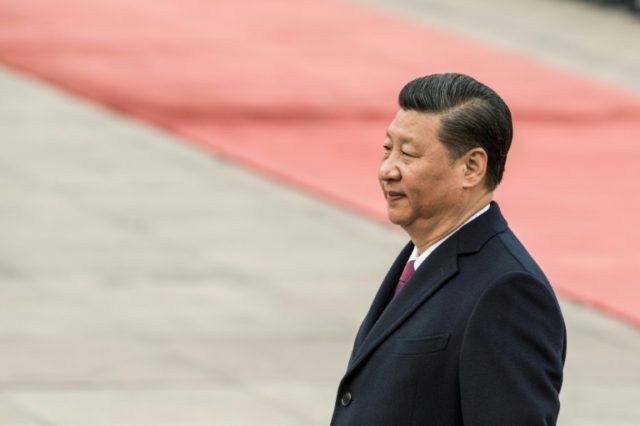A report from the South China Morning Post on Monday contends that China is dramatically accelerating its nuclear weapons research, conducting about four times more simulated nuclear explosions in laboratory experiments as the United States between 2012 and 2017.
The tests do not actually involve nuclear detonations. Instead, they use “high-powered gas guns that fire projectiles at weapons-grade materials in laboratories.” The resulting controlled explosions produce a small burst of heat and pressure comparable to a nuclear blast, without the accompanying radiation.
Modern sensory equipment and modeling computers can derive a tremendous amount of useful data for nuclear weapons research from the experiments, particularly when it comes to developing tactical “micro-nukes” that could be used for specific battlefield tasks such as destroying hardened bunkers.
According to the Lawrence Livermore National Laboratory, China conducted more of these tests in the past three years than the United States did in the previous fifteen. Much of the Chinese testing was conducted beneath the Mianyang mountains in southwestern Sichuan province.
Analysts quoted by the South China Morning Post worried that a new nuclear arms race is already underway. China appears to be rapidly making up for lost time with its sophisticated experiments while the U.S. considers a $1.2 trillion plan to modernize its nuclear arsenal and Russia belligerently announces one advanced weapons program after another.
As always with military affairs, China insists its activities are entirely defensive in nature, but the SCMP floats a disturbing number of scenarios where Beijing might find uses for precision micro-nukes, ranging from naval combat in the South China Sea to subjugating Taiwan. The heavy bombers China recently landed in the Paracel Islands are capable of carrying nuclear bombs, as are the bombers China periodically sends to circle Taiwan.
National Interest noted on Friday that China’s existing nuclear arsenal is believed to be modest in size, despite a demonstrated ability to “build very big bombs” if it wanted to. Historically, Beijing has fielded just enough atomic chess pieces to let everyone know it is a player in the game. One reason for this could be that China’s weapons program grew risky after its break with Russia in the Sixties, a few of its tests having rather suspenseful conclusions:
One H-bomb test nearly went horribly wrong. When test pilot Yang Guoxiang lined up his Q-5A fighter-bomber for its drop maneuver and pulled the weapon release, the bomb failed to drop. After three attempts Yang returned to base with a live hydrogen bomb slung beneath his plane. The whole airbase – all 10,000 crew – sheltered in underground tunnels while a lonely Yang carefully climbed out of his cockpit and awaited assistance. All ended well this time and Yang later successfully carried out his mission.
Yang’s sweaty afternoon on the tarmac aside, China also proved during this period that it was capable of playing nuclear catch-up with other powers extremely well, accomplishing in months what had taken years for the H-bomb trailblazers. Every nuclear power has grown interested in developing low-yield precision nukes instead of doomsday-scenario city-blasters that no sane government would ever dare to deploy.
Part of the concern may revolve around terrorists and rogue states calculating that since their civilized adversaries would never drop The Bomb on them, the nuclear deterrent that restrained large-scale conflict throughout the bottom half of the 20th Century is meaningless to them. Iran and al-Qaeda will call the old-fashioned Mutually Assured Destruction bluff in a way that Moscow and Beijing never did. Moscow and Beijing have reason to worry about that as much as Washington does.
The new arms race is about weapons that are less apocalyptic, but also less unthinkable. The United States cannot afford to be the only great power that is not thinking about them.

COMMENTS
Please let us know if you're having issues with commenting.